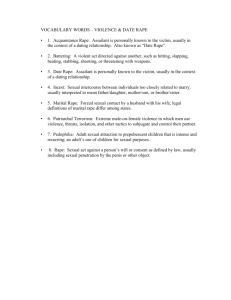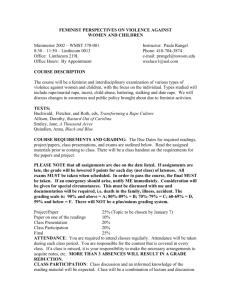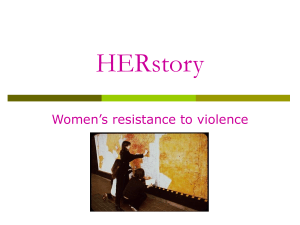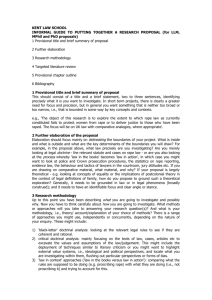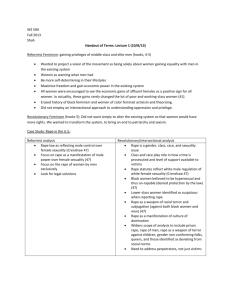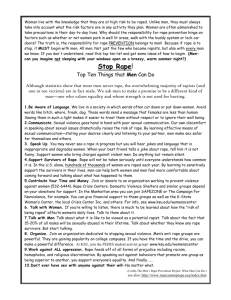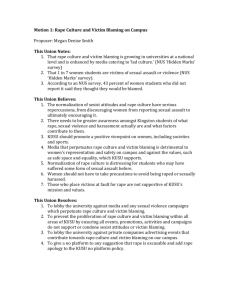Victim of rape cannot appeal to a higher court — PH law
advertisement
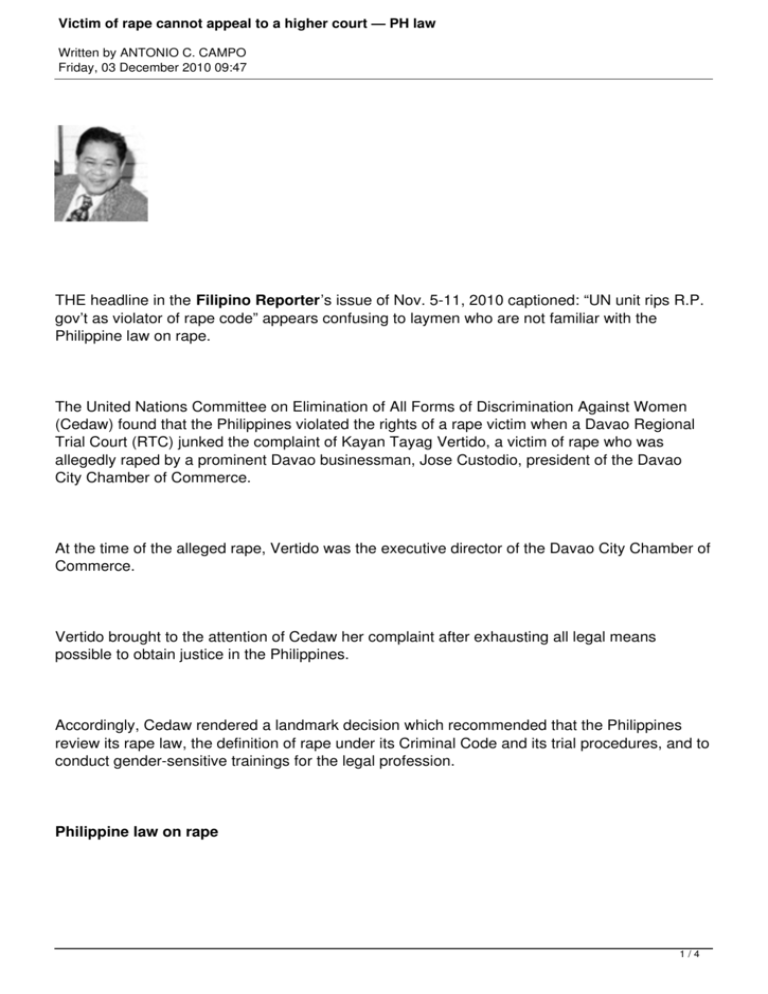
Victim of rape cannot appeal to a higher court — PH law Written by ANTONIO C. CAMPO Friday, 03 December 2010 09:47 THE headline in the Filipino Reporter’s issue of Nov. 5-11, 2010 captioned: “UN unit rips R.P. gov’t as violator of rape code” appears confusing to laymen who are not familiar with the Philippine law on rape. The United Nations Committee on Elimination of All Forms of Discrimination Against Women (Cedaw) found that the Philippines violated the rights of a rape victim when a Davao Regional Trial Court (RTC) junked the complaint of Kayan Tayag Vertido, a victim of rape who was allegedly raped by a prominent Davao businessman, Jose Custodio, president of the Davao City Chamber of Commerce. At the time of the alleged rape, Vertido was the executive director of the Davao City Chamber of Commerce. Vertido brought to the attention of Cedaw her complaint after exhausting all legal means possible to obtain justice in the Philippines. Accordingly, Cedaw rendered a landmark decision which recommended that the Philippines review its rape law, the definition of rape under its Criminal Code and its trial procedures, and to conduct gender-sensitive trainings for the legal profession. Philippine law on rape 1/4 Victim of rape cannot appeal to a higher court — PH law Written by ANTONIO C. CAMPO Friday, 03 December 2010 09:47 On the night of the alleged commission of rape, March 29, 1996, the governing law on rape is embodied under Article 266-A of Republic Act No. 8353, otherwise known as the Anti-Rape Law of 1997 which took effect on Oct. 22, 1997. Art. 266-A provides as follows: Art. 266-A. Rape, When and How Committed. - Rape is committed - 1) By a man who shall have carnal knowledge of a woman under any of the following circumstances: a) Through force, threat or intimidation; b) When the offended party is deprived of reason or is other unconscious; c) By means of fraudulent machination or grave abuse of authority; d) When the offended party is under 12 years of age or is demented even though none of the circumstances mentioned above be present. Art 266-B sets forth the penalties for rape: Rape under paragraph 1 of the next preceding article shall be punished by reclusion perpetua. Under Republic Act No. 8353, the crime of rape can now be committed by a male or female. Before its amendment, rape could only be committed by a male person. 2/4 Victim of rape cannot appeal to a higher court — PH law Written by ANTONIO C. CAMPO Friday, 03 December 2010 09:47 Philippine jurisprudence on rape Set forth below are decided cases on rape: A) Rape may be proved by the uncorroborated testimony of the offended woman - In the case of People vs. Landicho, C.A. 43 O.G. 3767. The court ruled that the testimony of the offended party most often is the only one available to prove directly the commission of rape; corroboration by other eyewitnesses is seldom available. In fact, the presence of such eyewitnesses would, in certain cases, place a serious doubt as to the possibility of its commission. The test, however, must be conclusive, logical and probale. In the cases of People vs. Cudira; People vs. Villapana and People vs. Aldana, the courts ruled that in reviewing the evidence adduced in a prosecution for the crime of rape, three well-known principles should guide an appellate court, namely, 1) than an accusation for rape can be made with facility, is difficult to prove but more difficult for the person accused, though innocent, to dispute; 2) that in view of the intrinsic nature of the crime of rape where only two persons are usually involved, the testimony of the complainant must be scrutinized with extreme caution; 3) that the evidence for the prosecution must stand or fall on its own merits, and cannot be allowed to draw strength from the weaknesses of the evidence for the defense. In the case of People vs. Baylon, the court ruled that where the testimony from the offended party is firm, categorical and straightforward, the accused should be convicted on the basis of her testimony. (Revised Penal Code, Annotated by Luis B. Reyes, retired associate justice of the Court of Appeals, and former professor of criminal law and bar reviewer.) Author’s comment Under Republic Act No. 8353 or the Anti-Rape Law of 1997, the UN Committee’s recommendation to review the Philippine rape law is not tenable for the complaint of gender-based discrimination is not based on the current law on rape. 3/4 Victim of rape cannot appeal to a higher court — PH law Written by ANTONIO C. CAMPO Friday, 03 December 2010 09:47 In fact, Republic Act No. 8353 has amended the law on rape when the crime of rape can now be committed by a male or a female. The acquittal of the accused, Jose Custodio, is based on the trial judge’s findings of the case as presented by the prosecution and the defense lawyer. Under Philippine law, the victim of rape cannot appeal to a higher court the judgement of acquittal of the judge in the Regional Trial Court. tonyc1028@aol.com 4/4
